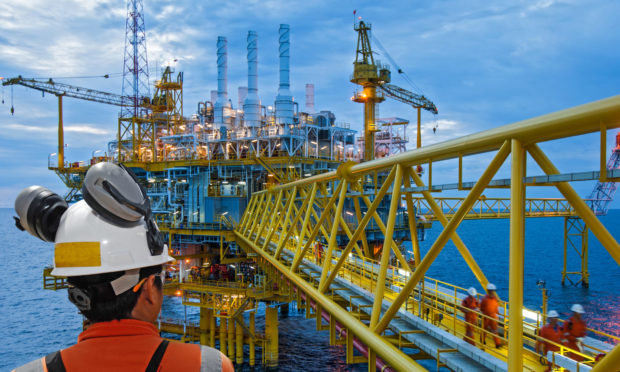More than half a decade on from the oil price collapse that gutted many parts of the UK’s energy industry, explorers in the North Sea hope they can bounce back from another major downturn sparked in part by the coronavirus.
As large parts of the British economy start to reopen, oil producers are still facing a depressed oil price that has already forced majors BP and Shell to slash tens of billions of pounds from how they value their assets.
The price of a barrel of Brent crude oil dropped below $19 in April because a global economy that was in lockdown needed a lot less oil.
It had already been under pressure as Saudi Arabia and Russia launched a race to increase their production, which flooded the market with cheap crude.
The price of Brent has now made up some ground, but at about $42 is still a third lower than it was at the start of this year.
But there are big differences between this year’s crash and that six years ago, said Mike Tholen, sustainability director at trade body Oil and Gas UK.
For years since 2014, producers have been tightening their belts by slashing costs that had run away before the crash, setting them up for today’s lower prices.
“Between 2014 and 2019 there was a massive amount of effort to get costs and efficiency back to a place they should have been in,” Mr Tholen said.
However, while demand for oil kept creeping up after 2014 as the global economy was unaffected, producers are facing a very different prospect today.
Reduced demand is placing very different pressures on the sector, forcing some drillers to put off plans to find more oil and gas.
“Immediate activity, whether it’s drilling activity, or project construction work, is under pressure at the minute,” Mr Tholen said.
But small explorers, looking to start production in the middle of the decade, have been largely unaffected.
The offshore workforce dropped from around 12,000 to 7,000 at the height of the Covid-19 crisis, but has since risen by about 2,000.
A mature basin but not without opportunities, insist companies
Despite the challenges posed by the Covid-19 crisis and climate change targets, there is still optimism among North Sea firms.
“People have been talking about the end of the North Sea for decades,” said Graham Swindells, chief executive of oil and gas exploration business, Deltic Energy.
The company, until recently called Cluff Natural Resources, plans to start exploring in the North Sea within a few years.
Mr Swindells continued: “There’s no doubt it’s a mature basin, but that doesn’t mean that there isn’t still a huge amount of potential.
“We certainly believe that there are a significant amount of resources still to be found, otherwise we wouldn’t be doing what we do.”
Andrew Benitz, the chief executive of Jersey Oil and Gas, which is to restart production at a former BP well, said his firm is still pushing ahead with plans to start producing in 2025.
“We think that it could be one of the very last bits of new infrastructure to go into this part of the central North Sea,” he said.
His comments touch on the double challenges that have been worrying North Sea watchers for years before Covid-19 came – climate targets and dwindling reserves mean production cannot continue forever. Oil production will need to drop by around a third by the end of this decade for the world to be on track with the Paris Agreement on climate change, said Charlie Kronick at Greenpeace.
He said: “We’ve got through the most acute part of the medical emergency around Covid-19.
“Now it’s the economic emergency that’s going to emerge. Realistically I think anybody connected to the North Sea value chain, whether they’re offshore workers, or the people who support offshore workers – which is hundreds of thousands of jobs in the UK – are going to have to seriously think about where their future lies.”
